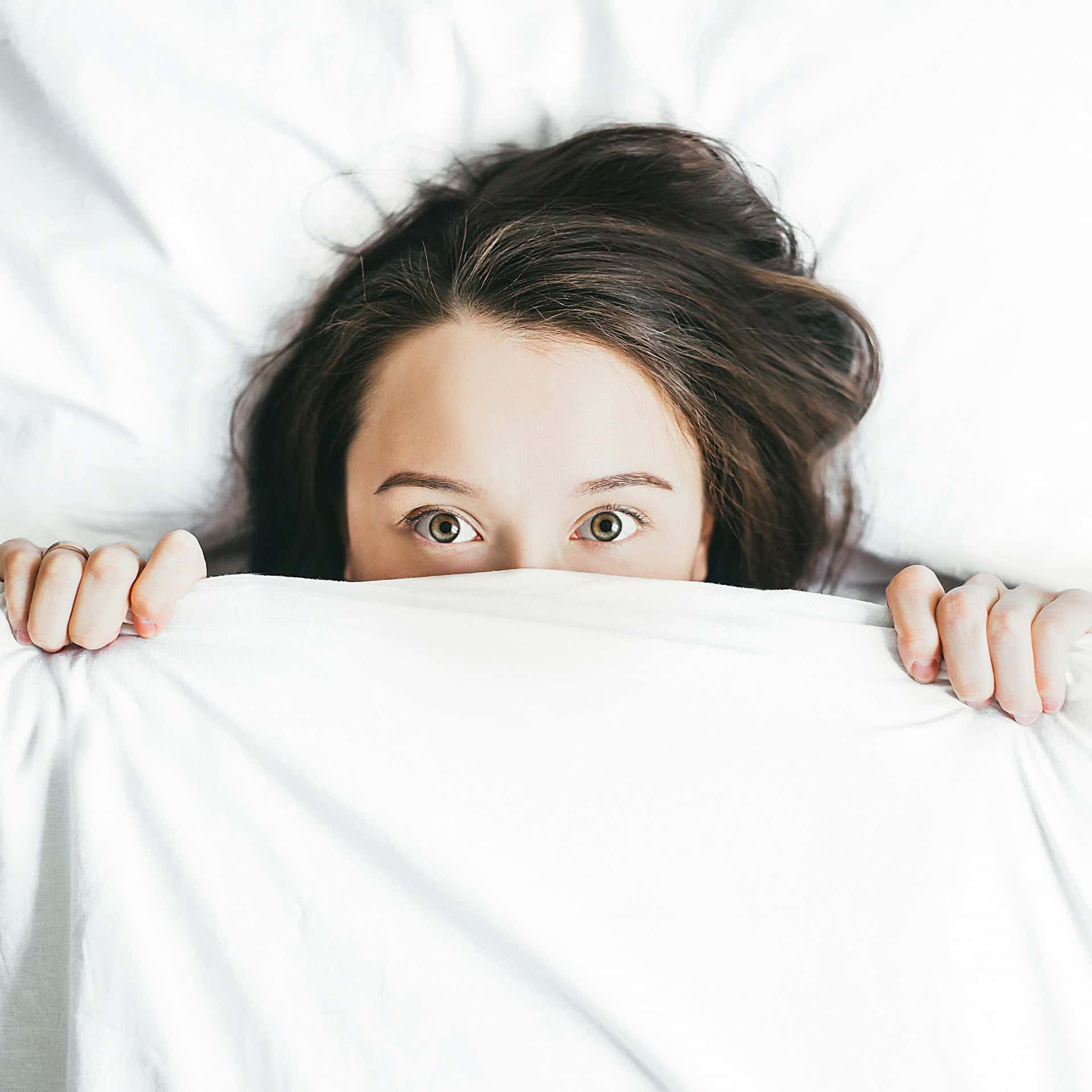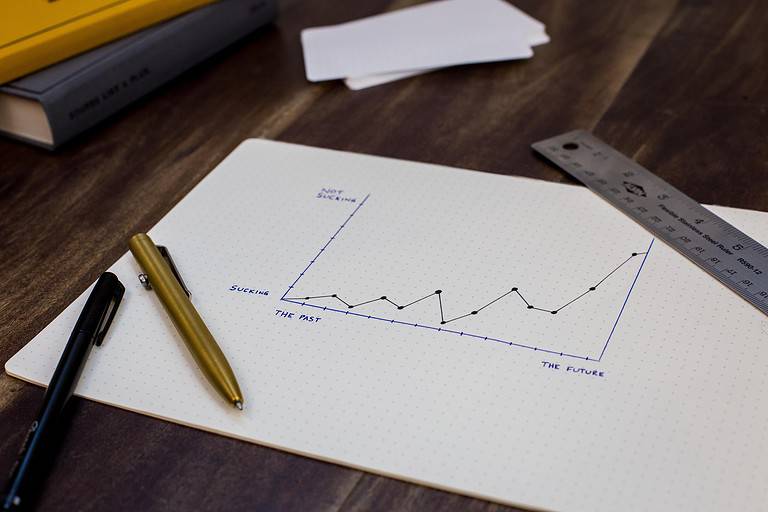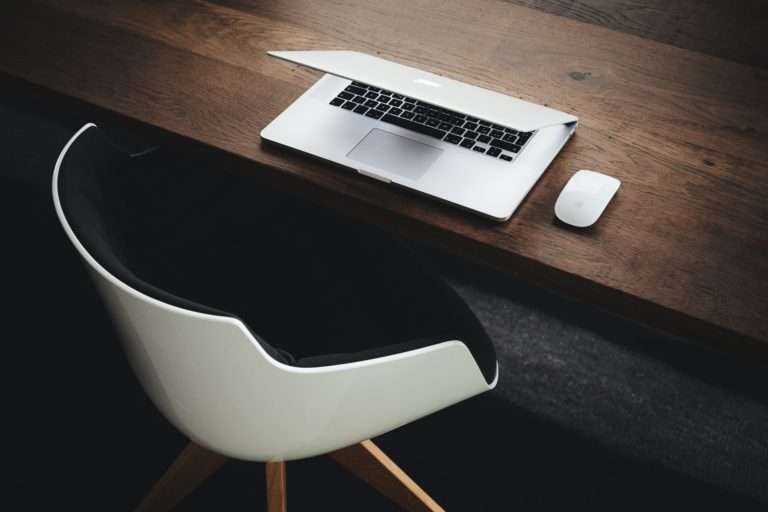How to Get Better Sleep: The Ultimate Sleep Blueprint
So why do we continue to prioritize everything else over our precious sleep? Why do we push ourselves to the brink of exhaustion and sacrifice our health in the process?
We live in a society that glorifies hustle culture and prioritizes productivity above all else. As a result, many of us have developed a mentality that views sleep as a luxury rather than a necessity.
Key Takeaways
- Understand the critical importance of sleep for business success and learn actionable tips for better sleep.
- Optimize your bedroom to be a sleep-conducive environment that is dark, cool, quiet, comfortable, clear, and distraction-free.
- Maintain a consistent sleep schedule that alights with your natural chronotype. Going to bed and waking up at the same time each day anchors your body’s circadian rhythm.
- Develop an evening wind-down routine that prepares your mind and body for a restful night. Use the 3-2-1 rule to avoid eating, liquids, electronics, and stimulation before bed.
- Track your sleep using an Oura Ring or another sleep-tracking device to gather data and make informed decisions about your daily habits.
- Prioritize quality sleep over quantity. Aim for 7-9 hours of uninterrupted sleep each night to reap the full benefits of restorative sleep.
Why Does A Good Night’s Sleep Matter?
But here’s a not-so-surprising revelation from Matt Walker, author of Why We Sleep:
“The shorter your sleep, the shorter your life. The leading cause of global death is lack of sleep.”
That’s right. Sleep is a non-negotiable must for peak performance and success. Getting enough quality sleep is crucial for our physical, mental, and emotional well-being. A good night’s rest is essential for maintaining overall health and well-being.
It allows our bodies to repair and recharge, improves cognitive function, boosts creativity and productivity, and helps regulate our mood. Quality sleep provides numerous mental health benefits, including improved mood, reduced stress, and better cognitive functioning.
Yet, despite all of these benefits, we continue to push ourselves to the brink of exhaustion in pursuit of success. We sacrifice our health by pulling all-nighters, chugging coffee to stay awake, and relying on energy drinks to power through the day.
But the truth is, no amount of hustle can compensate for a lack of rest. In fact, chronic sleep deprivation can lead to serious health issues such as heart disease, diabetes, and obesity. Poor sleep negatively affects our thinking ability, mood, heart health, and immune health, and can contribute to obesity and diabetes. It also impairs our judgment and decision-making abilities.
It’s time for us to shift our mindset and prioritize self-care over constant hustle. This means setting boundaries around work hours and making sleep a non-negotiable part of our daily routine. So, my focus this week is to help you prioritize sleep.
For more on why sleep matters, check out this video from Matt Walker:
Why Sleep Matters | Matthew Walker | Talks at Google
How to Optimize Your Bedroom Environment
So, what’s the secret to getting that elusive restful night? Start by creating a sleep-conducive environment that is dark, cool, quiet, comfortable, clear, and distraction-free.
Optimizing your bedroom for sleep involves creating an environment that promotes relaxation and minimizes disruptions. Here are some key steps you can take:
#1) Make It Dark: Control Light Exposure
Melatonin is a hormone that makes you feel sleepy. Darkness triggers the release of melatonin to signal the start of sleep. However, bright light, particularly at night, strongly suppresses melatonin, making you feel less sleepy and resulting in poorer quality sleep.
- Block Out Light: Use blackout curtains or blinds to keep the room dark. Consider using an eye mask to block out any remaining light in the room. I sleep with a WAOAW Sleep Mask, which comes in handy while on the road.
- Dim Lights: Use dim, warm lighting in the evening to signal to your body that it’s time to wind down. Opt for low-positioned lights (rather than overhead) and yellow or, even better, deep orange/red lightbulbs, as they are less stimulating than typical lights. I really like using Hue Smart Lights to control my lighting.
#2) Make It Cool: Regulate Temperature
Temperature plays a crucial role in sleep regulation. Your core body temperature should decrease by about 2-3°F (1°C) to fall asleep.
- Keep it Cool: The ideal bedroom temperature for sleep is typically between 60-67°F (15-19°C). However, find a comfortable temperature that works best for you and adjust accordingly. You can use a Google Nest Thermostat to adjust the temperature in your place automatically.
- Bedding: Choose breathable, moisture-wicking sheets and bedding that suit the season. To help cool down, stick your hands or feet out from underneath the covers. I really like my high-thread cotton Brooklinen sheets.
#3) Make It Quiet: Manage Noise Levels
- Minimize Noise: Keep your bedroom as quiet as possible. Avoid playing loud music late at night, and try using earplugs if you are sensitive to noise.
- White Noise: A fan, white noise machine, or a soothing sound app can help drown out background noise or disruptive sounds. My SNOOZ Smart White Noise Machine has come in handy when living in some loud cities.
#4) Make It Comfortable: Invest in a Good Mattress & Pillows
- Mattress: Choose a mattress that supports your body and sleep style. Look for options that relieve comfort pressure and promote a healthy sleeping posture. I have had a Casper mattress for years and couldn’t be happier with it.
- Pillows: Similar to mattresses, pillows should support your head and neck while you sleep. Look for options that align your spine and reduce pressure points. I have pillows from Casper, too.
- Essential Oils: Use calming scents like lavender or chamomile to create a relaxing atmosphere through a diffuser or pillow spray.
#5) Make It Clean: Reduce Clutter & Ventilate Air
- Make Your Bed: In William McRaven’s book, he states, “If you make your bed every morning, you will have accomplished the first task of the day.” At night, it is inviting to come back to a clean, well-made bed.
- Declutter and Tidy Up: A cluttered or unclean bedroom can make it harder to relax and fall asleep. Take a few minutes daily to tidy up and declutter your sleep space.
- Ventilate Air: Ensure proper ventilation with a HEPA air filter to keep the air in your bedroom fresh and clean. Also, having a slight airflow can help keep it cool. I like and use this Dyson Pure Cool Air Purifier to keep the air clean and cool while sleeping.
#6) Make It Distraction-Free: Limit Electronics
- No Screens: Keep TVs, computers, and smartphones out of the bedroom, or at least limit their use before bed. If you’re on a screen, dim it way down and set it to show warmer colors at night. Flux is a free app I use that allows for dimming.
- Get a Normal Alarm Clock: Use a traditional alarm clock instead of your phone to avoid the temptation of late-night browsing. I really like my Sunrise Smart Clock, which has a built-in alarm and Google Assistant for other tasks.
- Use Blue Blockers: If you absolutely must use electronics before bed, consider investing in blue light-blocking glasses. These reduce blue light and help you get sleepy. Here are ones you can get right on Amazon.
Implementing these changes can significantly improve your sleep quality.
The following section will also discuss how practicing good sleep hygiene and creating a calming bedtime routine can also contribute to better sleep.
The Perfect Pre-Sleep Wind-Down Routine
It’s getting to the end of the day. You’ve worked hard and accomplished your daily goals, and now it’s time to relax and wind down before heading off to bed.
But do you have a healthy sleep routine in place for this crucial time before bed?
You should establish a consistent wind-down routine to improve the quality of your sleep, reduce stress, and prepare yourself for success the following day. A good wind-down routine is essential for falling asleep quickly and easily.
Just like slowing down a car before coming to a stop, it’s essential to gradually transition from the day’s activities for better sleep. This helps ensure you stay asleep through the night and wake up feeling refreshed.
Your Circadian Rhythm: Consider a Consistent Sleep Schedule
Maintain a consistent sleep schedule that aligns with your natural chronotype. Going to bed and waking up at the same time each day anchors your body’s circadian rhythm, reduces all-cause mortality, and improves overall sleep patterns and quality. This consistency is crucial for enhancing nighttime sleep quality.
- Aim for Consistent Bedtimes and Wake times: Have a consistent bedtime with a 30-minute margin of error, whether it’s the weekend or a weekday. It’s okay if it’s not perfect, but it’s a good goal to strive for.
- Consider Setting a Bedtime Alarm: In addition to your morning alarm, consider setting a “bedtime alarm” to remind you when to go to sleep.
- Align your Sleep with your Chronotype: Are you a morning person, a night owl, or somewhere in between? Chronotype is mainly genetic, but your preferred sleep time may change as you age. You can determine your natural chronotype using the Morningness-Eveningness Questionnaire (MEQ).
Next, establish the perfect pre-sleep wind-down routine using the 3-2-1 Rule:
3 Hours Before Bed: Avoid Meals, Caffeine, or Alcohol
The impact of food on sleep depends mainly on appetite, circadian rhythm, and personal preference. Experiment with different foods and timing to find what best supports your sleep. Caffeine and alcohol can also disrupt your sleep cycle.
- Avoid Eating: For most, eating about 3 hours before bedtime doesn’t typically impact sleep. Digestion requires energy, and eating right before bed can increase the chance of getting heartburn and keep you awake.
- Avoid Being Overly Hungry: If you need to eat, have a smaller snack or meal. Also, avoid sleeping while overly hungry, as most people can’t.
- Avoid Caffeine for 8-10 Hours: Caffeine only temporarily masks sleepiness and can lead to a “caffeine crash” when it wears off. Thus, timing is crucial for sleep quality, so avoid it within 8-10 hours of bedtime. It negatively affects sleep, including REM duration.
- Avoid Alcohol: While alcohol can make you feel drowsy, it is a sedative, not a sleep aid. While it may help you fall asleep faster, it disrupts your sleep cycle. As the body metabolizes alcohol throughout the night, it causes fragmented sleep.
2 Hours Before Bed: Avoid Liquids, Stop Working, & Change Your Environment
Next, we will transition away from working and change our environment to promote sleep. This will help signal to our bodies that it is time to wind down and prepare for rest.
- Avoid Liquids: Avoid drinking liquids to reduce the chances of waking up in the middle of the night to use the bathroom. This can disrupt sleep and make it more challenging to fall back asleep.
- Stop Working: Yes, this may be hard, but you must put it down. This includes checking work emails, brainstorming for projects, or engaging in heavy discussions. Working before bed heightens your anxiety and overstimulates your brain.
- Change Your Environment: If you haven’t already, put your blue blockers on and dim/redden your lights. This signals to your brain that it is time for sleep. You can also play soft, soothing music or defuse relaxing scents like lavender or chamomile.
1 Hour Before Bed: Relax with No Screens
Power off electronic devices like phones, tablets, and televisions to avoid exposure to blue light, which disrupts the production of sleep-regulating hormone, melatonin. Note that you should avoid melatonin supplements as it will affect your body’s natural production of melatonin.
- Avoid Stimulating Activities: Avoid stimulation before bedtime, such as watching TV, reading the news, intense exercise, or using social media.
- Clear Your Mind: Keep a notebook by your bed so you can write down all your lingering thoughts and clear your mind. If you have a lot on your plate, try making a to-do list for the next day so you don’t have to worry about forgetting anything.
- Engage in Relaxation: You can relax through mindfulness meditation, deep breathing, listening to music or podcasts, enjoying sleep stories, or reading a book. Notably, deep breaths rapidly shift the autonomic nervous system towards a state of increased calm.
- Take a Warm Bath or Shower: This enhances your ability to fall asleep and achieve deep sleep quickly. Initially, the warm water increases core temperature, but subsequent cooling helps induce sleep after a hot bath or shower.
- Take Magnesium: Magnesium is an essential mineral that helps regulate sleep and calm the nervous system. Research has shown that those with magnesium deficiency may experience more difficulty falling and staying asleep. My go-to brand for Magnesium is MagTech.
There you have it—some simple but effective ways to relax and prepare your mind and body for a restful night’s sleep. Try incorporating these into your bedtime routine and see the difference in your sleep quality.
Track Your Sleep with the Oura Ring
If you’re serious about optimizing your sleep quality, the Oura Ring should be at the top of your wishlist. This sleek, unobtrusive wearable tech is more than just a sleep tracker; it’s like having a personal health coach wrapped around your finger.
The Oura Ring monitors your heart rate, body temperature, and even respiratory rate to provide a comprehensive analysis of your sleep patterns. It also tracks your activity levels and provides personalized recommendations to help you improve your sleep quality and overall health.
Why is this important for us business owners and high performers?
Because tracking is half the battle. As Peter Drucker has said, “If you can measure it, you can manage it.” And when it comes to our health and productivity, this phrase holds true as well.
By using the Oura Ring to track your sleep patterns, you can gain valuable insights into how different factors, such as stress levels, exercise, and diet, affect your sleep quality.
Armed with this information, you can make informed decisions to optimize your lifestyle for better sleep and, ultimately, improved productivity.
Take It to the Next Level: Focus on Improving Sleep Quality
For us at The Process Hacker, one sleep KPI stands out among the rest: Sleep Quality. Forget getting work done and profiting for a moment—if you’re not well-rested, your decision-making, leadership, and overall efficiency can suffer.
So, how do we measure sleep quality? It’s more than just the number of hours you clock in bed. Sleep quality takes into the following key factors:
- Sleep Duration: The total amount of sleep time, typically measured in hours. Most adults need 7-9 hours per night.
- Sleep Efficiency: The percentage of time spent asleep while in bed. A high sleep efficiency (85% or higher) indicates good sleep quality.
- Sleep Onset Latency: The amount of time it takes to fall asleep. Ideally, this should be at least 20 minutes.
- Awakenings: The number of times a person wakes up during the night and how long they stay awake. Fewer and shorter awakenings are better.
- REM Sleep: The amount of Rapid Eye Movement (REM) sleep, which is crucial for cognitive functions and emotional regulation.
- Deep Sleep: The amount of deep sleep (also known as slow-wave sleep) is essential for physical restoration and memory consolidation.
High sleep quality means you get restorative sleep cycles, including REM and deep sleep stages, which are critical for cognitive function and physical health. If I had to focus on one factor, it would be sleep duration, as most people simply do not sleep enough.
Fortunately, tools like the Oura Ring can provide these insights, but you can also keep a simple sleep journal. Track how you feel each morning, note any disturbances, and adjust your routines accordingly.
If you have trouble sleeping or persistent sleep issues arise, you should consult your doctor or healthcare professional specializing in sleep medicine is crucial for proper diagnosis and treatment. Sleep apnea, insomnia, and other sleep disorders can have serious long-term effects on both physical and mental health.
Ultimately, improving your sleep quality can lead to sharper focus, better problem-solving, and a more resilient mindset.
Further Sleep Resources
For more information on improving your sleep, check out these resources:
- Why We Sleep by Matthew Walker, PhD
- Huberman Lab: Toolkit for Sleep
- Huberman Lab Podcast with Dr. Matt Walker
- Bryan Johnson: My Evening Routine – Top 1% Sleep Ranking
- The Process Hacker: How Much Sleep Do You Need To Be Productive?
Final Thoughts on Sleeping Better
In today’s fast-paced world, it’s easy to overlook the importance of getting a good night’s sleep. But after reading this blog post and learning about all the benefits of quality sleep, I hope you are convinced to make it a priority in your life.
Remember, you can improve your overall health and well-being by implementing the strategies we discussed, such as creating a relaxing bedtime routine and creating a comfortable sleep environment.
So, let’s all commit to value and prioritize our sleep! Let’s turn off those screens, dim the lights, and dive into bed for much-needed rest. Trust me, your body and mind will thank you for it.
And lastly, don’t forget that self-care is not selfish; taking care of yourself first will allow you to take care of others better and tackle your day with renewed energy.
So here’s your call to action: let’s all aim for those solid 7-9 hours of rest each night and see its positive impact on our lives. Cheers to getting better sleep!







